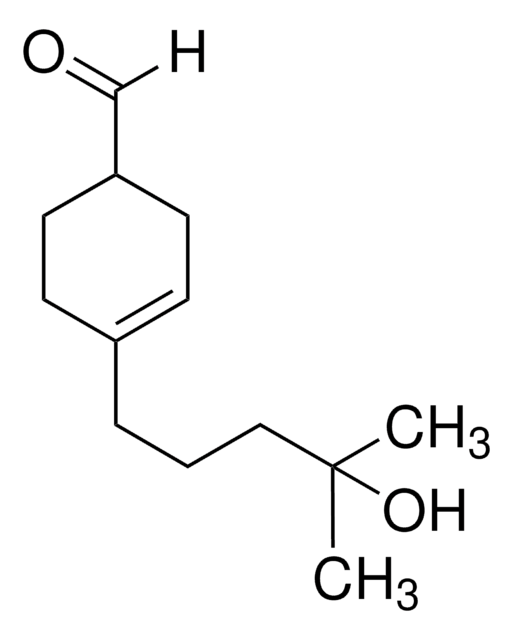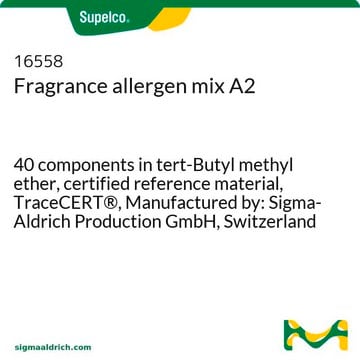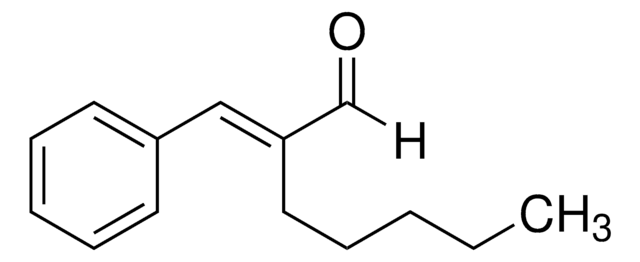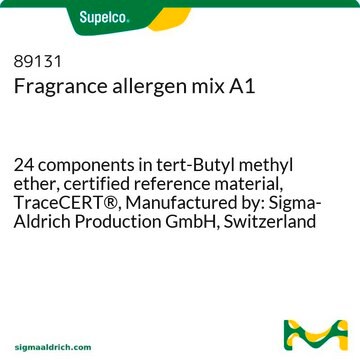93192
α-Cetone
odorant used in allergy studies
Synonym(s):
3-Methyl-4-(2,6,6-trimethyl-2-cyclohexen-1-yl)-3-buten-2-one, α-Cetone, Isomethyl-α-ionone
About This Item
Recommended Products
grade
for molecular biology
Quality Level
form
liquid
composition
iso-ɑ-methylionone, ≥85%
iso-β-methylionone, ≤10%
density
0.93 g/mL at 20 °C (lit.)
storage temp.
room temp
SMILES string
CC(=O)C(\C)=C\C1C(C)=CCCC1(C)C
InChI
1S/C14H22O/c1-10-7-6-8-14(4,5)13(10)9-11(2)12(3)15/h7,9,13H,6,8H2,1-5H3/b11-9+
InChI key
JRJBVWJSTHECJK-PKNBQFBNSA-N
Looking for similar products? Visit Product Comparison Guide
General description
Application
- contact sensitization studies to identify allergens present in cosmetic preparations
- elucidation of molecular pathways related to allergic reactions
- analytical standard
Hazard Statements
Precautionary Statements
Hazard Classifications
Aquatic Chronic 2
Storage Class Code
10 - Combustible liquids
WGK
WGK 2
Flash Point(F)
230.5 °F - closed cup
Flash Point(C)
110.3 °C - closed cup
Personal Protective Equipment
Certificates of Analysis (COA)
Search for Certificates of Analysis (COA) by entering the products Lot/Batch Number. Lot and Batch Numbers can be found on a product’s label following the words ‘Lot’ or ‘Batch’.
Already Own This Product?
Find documentation for the products that you have recently purchased in the Document Library.
Customers Also Viewed
Our team of scientists has experience in all areas of research including Life Science, Material Science, Chemical Synthesis, Chromatography, Analytical and many others.
Contact Technical Service










